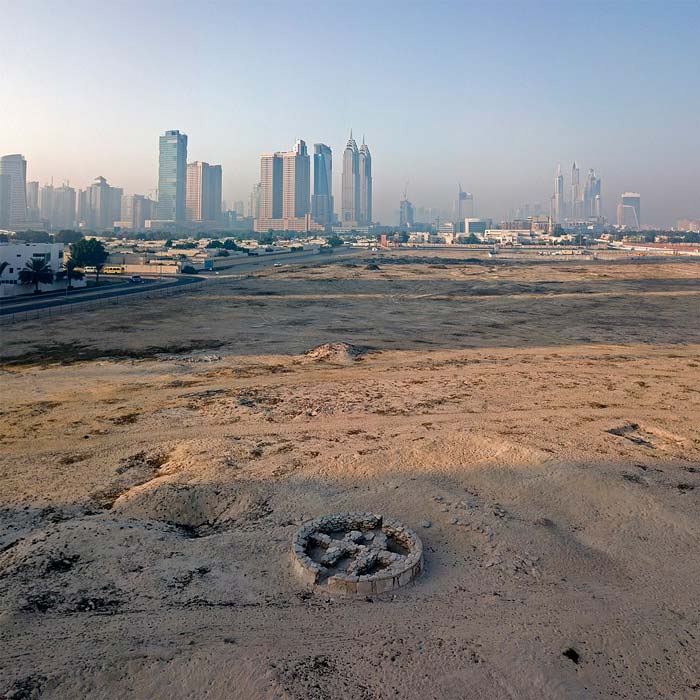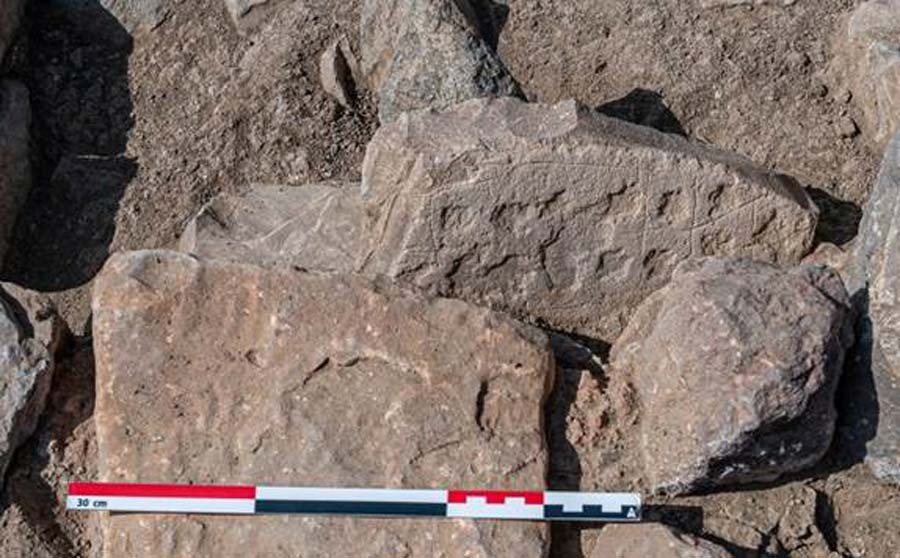Incredible 4,000-year-old Stone Board Game Found in Oman Was For More Than Just Fun
A 4,000-year-old stone board game has been discovered at a Bronze Age and Iron Age settlement in Oman. Furthermore, stone towers and evidence of Bronze Age trade has also been found in the same area, which all stand testimony to the prehistoric trading stature of this early economic center.
Earlier archaeological surveys had identified several prehistoric campsites, burials, settlements and tower structures within a close vicinity of the village of Ayn Bani Saidah, Oman. Now, a team of archaeologists excavating at an early Bronze Age settlement site have recently presented a suite of new discoveries including a 4,000-year-old board game, which is thought to have been a centerpiece in early copper traders’ meetings.

The dig site in a remote valley in northern Oman where the 4,000-year-old stone board game was found. (PCMA)
Stone Board Game Found in the Remotest Corner of Oman
The researchers were jointly led by Prof. Piotr Bieliński from the Polish Centre of Mediterranean Archaeology (CAŚ), with scientists from University of Warsaw (PCMA UW) and Dr. Sultan al-Bakri, Director General of Antiquities at the Ministry of Heritage and Tourism (MHT) of the Sultanate of Oman.
- Oldest metal object found to date in Middle East
- Native North Americans Were Making Copper Tools in 7,500 BC
An article published by PCMA explains that this recent excavation was performed in “one of the least studied corners of Oman: the mountain valleys of the Northern Hajar range.” Prof. Bieliński said Ayn Bani Saidah “is strategically located at a junction of routes connecting Bat in the south, Buraimi and Al-Ayn in the north, and the seacoast near Sohar in the east.”

A distinctive Bronze Age Umm Al Nar burial at the Al Sufouh Archaeological site in Dubai. (Sahil.latheef / CC BY-SA 4.0)
Gaming With “The Mother Of Fire”
The most recent excavations at the settlement site focused on an archaeological layer dating from the Umm an-Nar (Mother of Fire) phase of the Bronze Age (3300-1200 BC). Several copper objects were found at the site, but more importantly, evidence of copper processing was also discovered. This means the settlement was involved in the lucrative copper trade.
Perhaps the most interesting discovery at the site was a stone board game marked with fields and cup holes, similar to the ancient games unearthed in India, Mesopotamia, and across the Eastern Mediterranean basin. In deep history, fireside games were initially played with shells, stones, sticks and bones. Board games were sometimes used for oracular and divinatory purposes. The newly discovered stone board game found in Oman showed considerable complexity.

The rules of the ancient Egyptian Mehen board game, pictured here, remain unclear, as the game faded from popularity following the decline of Egypt’s Old Kingdom. (Egyptian Museum of Berlin / CC BY 3.0)
The Ancient Origins of Board Games
Evidence of ancient board games has been unearthed in Turkey, Syria, and Iraq. A 2016 Ancient Origins article explains that board games were often given as “valuable diplomatic gifts.” To own a board game was a powerful status symbol signifying wealth. Furthermore, archaeologists suspect geometric board layouts were deemed as magical, and this is why they are often found in tombs, because they were seen as important devices in the afterlife.
The ancient Egyptian board game Senet, which dates to the time of Hesy-Ra an ancient Egyptian high official during the early Third Dynasty of Egypt, is one of the oldest board games on record.
The game of chess originated with the Indian game, Chaturanga, which was described in seventh century AD texts as a game simulating a battle between the four arms of the Indian army. The four sides battled on the board and the outcome of the game was influenced by conceptual factors like rain, and how these factors affected the battlefield.

This Ludus Latrunculorum board found in Roman Britain was used in a two-player strategy game designed to test participants’ military prowess, played on grids of varying sizes. (English Heritage)
The Benefits of Board Games
Today, a member of Board Game Geek posted on a forum saying the newly discovered board game in Oman is similar to the layout of Chaturanga / chess. Putting this particular game in context, it is thought that the early Bronze Age traders may have played a similar strategy game of some kind, perhaps as part of their meetings where they settled debts and discussed future trading plans and strategies.
- Egyptian Blue – The Oldest Known Artificial Pigment
- Irish Sporting Games: A Big Event 1,000 Years Before Greek Olympics
Playing board games not only stimulates brain areas associated with memory formation and complex thought processes, but players develop essential cognitive skills like forecasting outcomes, decision making, higher level strategic thinking and problem solving. According to the article Benefits of Playing Board Games, players learned how to set goals and be patient, which reduced stress and increased laughter resulting in greater happiness, creativity, and self-confidence.
Top image: This 4,000-year-old Bronze Age stone board game was recently unearthed in a remote area of northern Oman at an ancient copper trading center. Source: PCMA
By Ashley Cowie



















